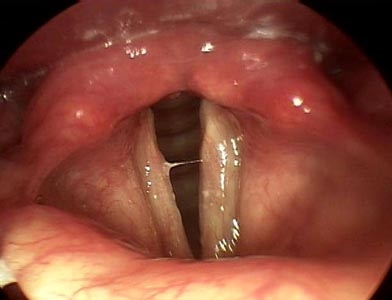Laryngopharyngeal reflux
Laryngopharyngeal reflux is caused due to retrograde flow of gastric contents into laryngopharynx.
This condition is related to GERD (Gastric oesophageal reflux disease). In fact it is a common extra oesophageal manifestation of GERD.
Clinical manifestations:
Voice change
Excessive throat clearing
Copious amount of mucous
Feeling of lump in the throat
Difficulty in swallowing
Heart burn
Chronic cough
Vague discomfort in the throat
To help in the diagnosis of laryngopharyngeal reflux two score charts have been devised:
1. Reflux symptom index
2. Reflux finding score.
Reflux symptom index: Suspected patients are given a questionnaire to answer. It contains about 9 questions. Patient is supposed to award scores according to their symptoms.
Reflux symptom index chart:
Within last month how did the following problems affect you ?
1. Hoarseness of voice / voice problems : scores 0 - 5. 0 = No problem 5 = severe problem
2. Clearing your throat: Scores 0 - 5
3. Excess throat mucous / post nasal drip: scores 0 - 5
4. Difficulty in swallowing food / liquids / pills: scores 0-5
5. Cough after eating / lying down: scores 0-5
6. Breathing difficulty / choking: scores 0-5
7. Annoying cough: Scores 0-5
8. Sticky sensation in throat / lump in throat: Scores 0-5
9. Heart burn / chest pain: scores 0-5
Reflux symptom index score of more than 13 indicates laryngopharyngeal reflux.
Reflux finding score:
This scoring is prepared by the surgeon after performing a laryngeal examination.
1. Subglottic oedema: 0 - absent, 2 - present.
2. Ventricular obliteration: 2 - partial, 4 - complete
3. Erythema / Hyperemia: 2 - arytenoids involved, 4 - diffuse
4. Vocal fold oedema: 1 - mild, 2 - moderate, 3 - severe, 4 - polypoidal
5. Diffuse laryngeal oedema: 1 - mild, 2 - moderate, 3 - severe, 4 - obstruction
6. Posterior commissure hypertrophy: 1 - mild, 2 - moderate, 3 - severe and 4 - obstruction.
7. Granuloma / Granulation: 0 - absent, 2 - present
8. Thick mucous: 0 - absent, 2 - present.
A score of 7 indicates possible presence of laryngopharyngeal reflux.
Pepsin Immunoassay:
Detection of pepsin in the throat sputum of patients indicates the presence of laryngopharyngeal reflux.
It is 100% sensitive, and 90% specific.
Management:
1. Cessation of smoking
2. Decreased fat intake
3. Avoiding going to bed within three hours after eating
4. Elevation of head during sleep
